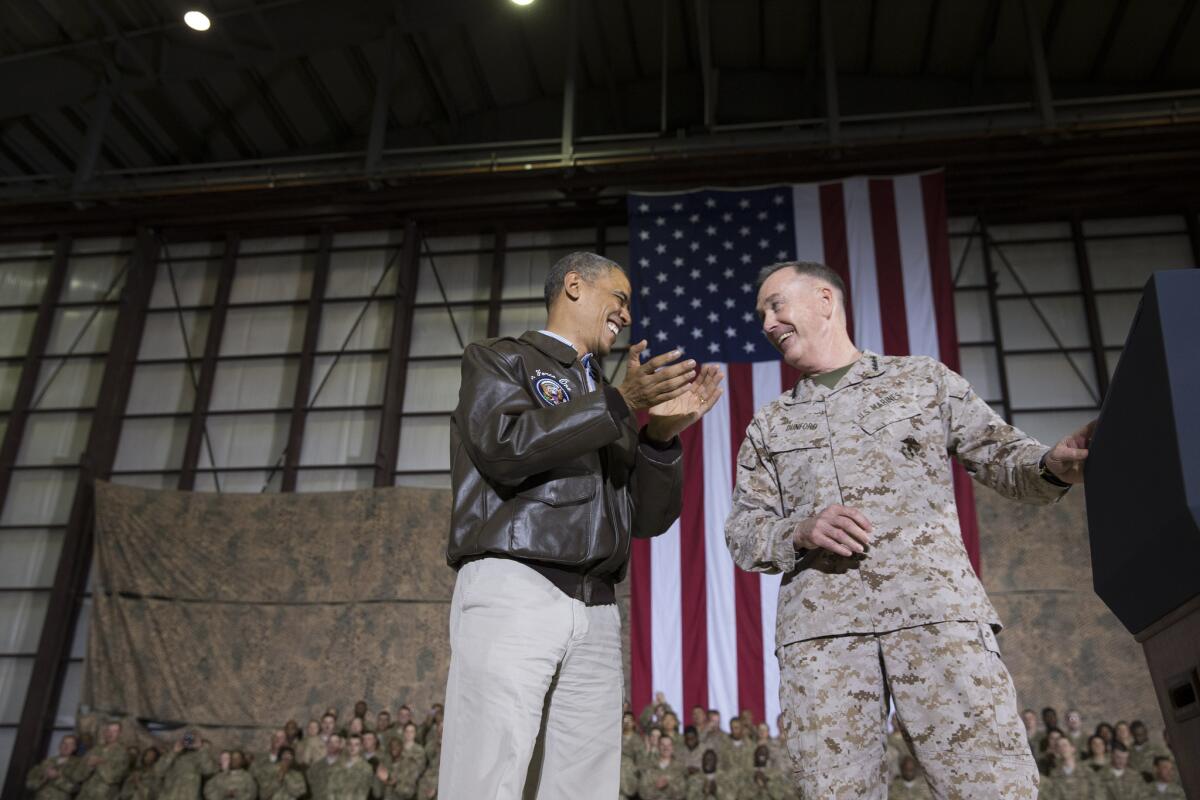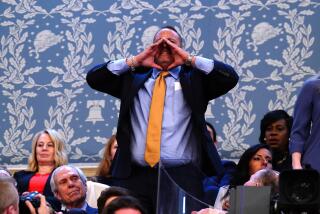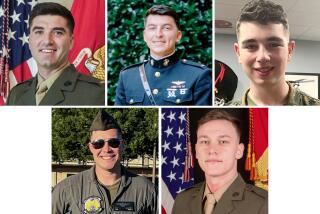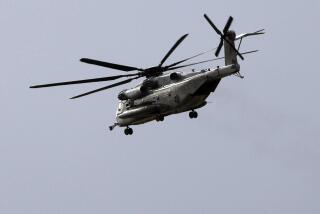General from Camp Pendleton nominated to be next Marine commandant

A Marine general with ties to Camp Pendleton has been nominated to become the next commandant of the Marine Corps, the Pentagon announced Thursday.
President Barack Obama has nominated Gen. Joseph F. Dunford Jr. to be the 36th commandant, succeeding Gen. James Amos, who is set to retire this fall as the top general in the Marine Corps.
The nomination, announced by Defense Secy. Chuck Hagel, requires U.S. Senate confirmation.
Dunford, 58, is the top U.S. and NATO general in Afghanistan.
During the assault to topple Saddam Hussein in Iraq in 2003, Dunford was the commander of the Camp Pendleton-based 5th Marine Regiment, earning the nickname “Fighting Joe.” He served 22 months in Iraq, including as chief of staff and then assistant commander of the Camp Pendleton-based 1st Marine Division.
In 2009, he was appointed by Obama to be the commander of the Camp Pendleton-based 1st Marine Expeditionary Force. In 2012, Obama named him to lead U.S. and NATO forces in Afghanistan.
Dunford, born in Boston and reared in Quincy, Mass., graduated from St. Michael’s College in 1977 and was commissioned as a Marine officer. He later received masters’ degrees in government from Georgetown University and international relations from the Fletcher School of Law and Diplomacy at Tufts University.
He was assistant commandant for two years before taking the post in Afghanistan.
In March, Dunford told the Senate Armed Services Committee that the U.S. and NATO efforts in Afghanistan have prevented Al-Qaida and other terrorist groups from using the country as a haven and staging ground.
But he warned that progress is “fragile” and that Afghanistan will need military trainers and other assistance after the U.S. ends its combat role at the end of this year.
The Afghan forces, Dunford said, have suffered “high casualties and instances of poor leadership but (also) impressively remained a cohesive and resilient fighting force.”
More to Read
Start your day right
Sign up for Essential California for news, features and recommendations from the L.A. Times and beyond in your inbox six days a week.
You may occasionally receive promotional content from the Los Angeles Times.






